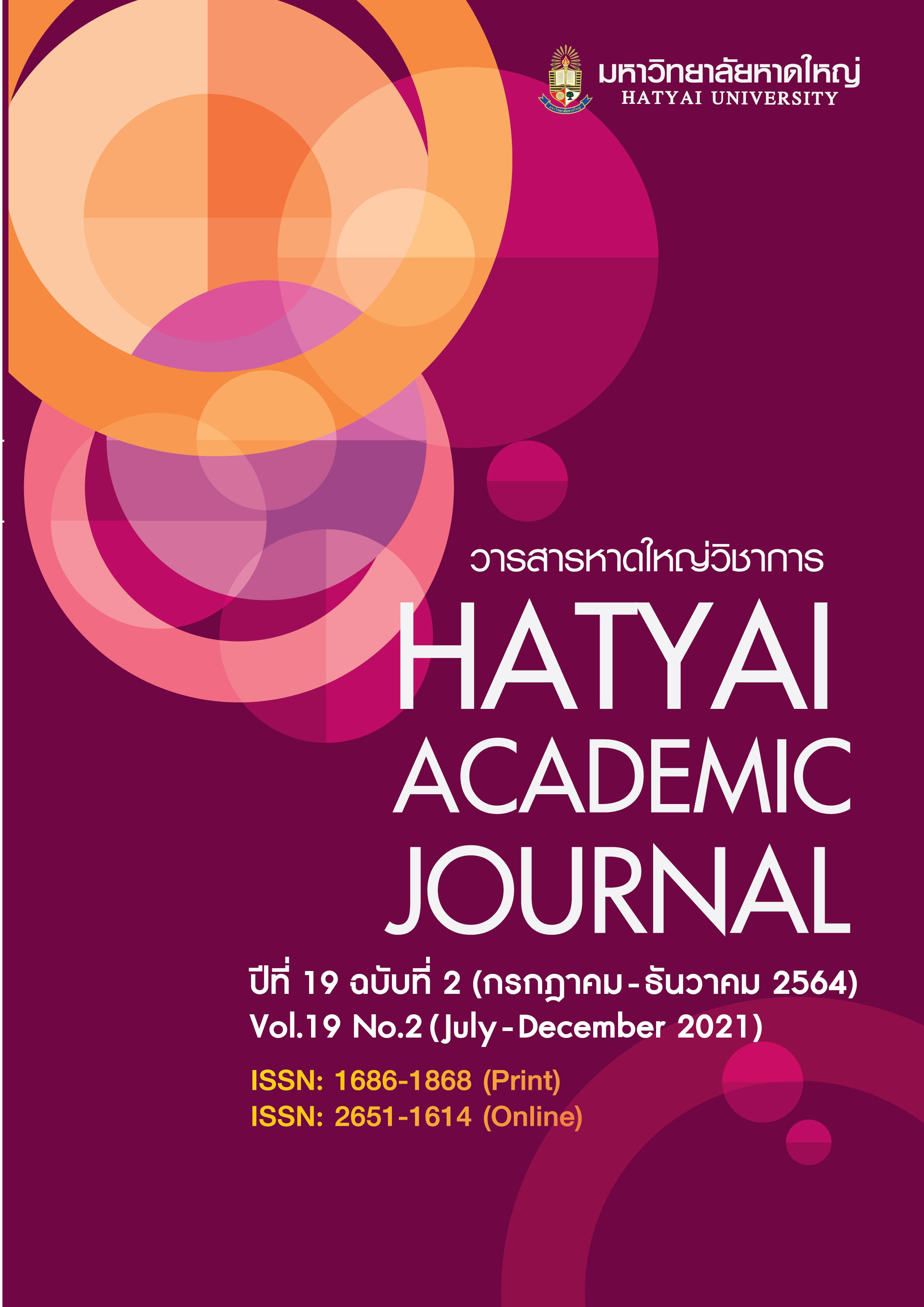An Analysis of the Causal Relationship of the Quality in Educational Management of Children’s Development Centers Under the Supervision of the Local Administrative Organization
Main Article Content
Abstract
This research aimed to study the causal variables of the quality in educational management of children’s development centers under the supervision of the Local Administrative Organization. Multi-stage randomization revealed the total number of the sample, which was 1,200 child development centres nationwide. A calculation to determine the appropriate sample size for structural equation analysis was also administered. Tools used include 87-item questionnaires regarding the quality of children’s development centers with the values of content validity and reliability lying between 0.60-1.00 and 0.731-0.828. Correlation coefficient analysis and structural equation analysis were employed in the study with additional analysis of frequency, percentage, average, standard deviation, distribution coefficient, maximum value, minimum value, skewness, and kurtosis. The results showed that causal variables of the educational management quality of the centers consist of management skills, changed leadership, and purposeful communication. The results of the causal relationship analysis showed that there is a compliance among empirical data with the following values: = 3.12, df = 1, p-value = 0.077, RMSEA = 0.042, GFI = 1.00, AGFI = 0.99, RMR = 0.009, and NFI = 1.00. All the variables are affecting the educational quality of children’s development centers, indicated by influential values lying between -0.07 and 0.51, statistically significant at 0.05.
Article Details
All published articles are evaluated by three qualified peer reviewers from various institutions through a double-blind process, where reviewers do not know the authors’ identities and authors do not know the reviewers’ identities. The content and articles in the Hatyai Academic Journal reflect the authors’ views only and are neither the opinions of the editorial board nor the responsibility of Hatyai University. The Editorial Board of the Hatyai Academic Journal allows articles to be reproduced for academic purposes, on the condition that the original source is clearly cited.
References
Bass, B. M. (1985). Leadership and performance beyond expectations. New York: Free Press.
Boonlert, A. (2019). Administrative skills of administrator and the quality of work life of teacher in school under the office of secondary educational service area 1. Journal of MCU Buddhapanya Review, 4(3), 441-454. [in Thai]
Chuamuangphan, K., & Teerapong, T. (2019). Effects of communication program on communication ability of health care volunteers for patients in a community in Maelao District, Chiang Rai Province. Journal of Human Sciences, 20(1), 214-239. [in Thai]
Chuetassanaprasit, S. (2016). The problems of the child development centre under the management of the local government in Chonburi province (Master’s thesis). Burapa University, Chonburi. [in Thai]
Cox, A. (2014). Increasing purposeful communication in the workplace: Two school-district models. Delta Kappa Gamma Bulletin, 80(3), 34-38.
Department of Local Administration. (2018a). Early childhood education standards. Bangkok: Ministry of Interior. [in Thai]
Department of Local Administration. (2018b). Standards of operation of the child development centre of the local government Organization. Bangkok: Ministry of Interior. [in Thai]
Drake, T. L., & Roe, W. H. (1986). The Principalship (3rd ed.) New York: Prentice-Hall.
Gaiyawan, Y. (2013). Multivariate statistical analysis for research. Bangkok: Chulalongkorn University. [in Thai]
Hoy, W. K., & Miskel, C. G. (2005). Education administration: Theory research and practice (7th ed.). New York: McGraw-Hill.
Khoonthaweelapphon, P., & Viseshsiri, P. (2017). Problems and issues for internal quality assurance for the child’s development centre under the local administrative Organizations. An Online Journal of Education, 12(1), 49-60. [in Thai]
Meesuk, P. (2020). Educational Research (2nd ed.) Bangkok: Triple Education. [in Thai]
Meesuk, P., Sramoon, B., & Wongrugsa, A. (2019). A development of learning management by using classroom action research-based instruction innovation for potential enhancing of researcher-teacher and children in Thailand early childhood development centre. Pathumthani: Rajamangala University of Technology Thanyaburi. [in Thai]
Meesuk, P., Sramoon, B., & Wongrugsa, A. (2020). Classroom action research-based instruction: The sustainable teacher professional development strategy. Journal of Teacher Education for Sustainability, 22(1), 98-110. [in Thai]
Okcu, V. (2014). Relation between secondary school administrators’ transformational and transactional leadership style and skills to diversity management in the school. Educational Sciences: Theory & Practice, 14(6), 2162-2174.
Orlando, M. M. (2016). Linking transformational leadership and Organizational trust: Has Organizational commitment a mediating effect on it?. Cuadernos de Geston, 16(1), 43-62.
Royal Thai Government Gazette. (2017). Constitution of the Kingdom of Thailand B.E. 2560. Bangkok: Thailand. [in Thai]
Samneang, C., & Nasee, P. (2014). Local administrative Organization: Semi-formal political space mobilised by informal actors. Journal of Human Science, 15(1), 106-147. [in Thai]
Sare-ard, N., & Sonchan, C. (2019). Problems and guidelines for the educational management of early childhood development centres in the local administrative Organizations in Nong Bua Lum Phu province. Journal of Graduate school Sakon Nakhon Rajabhat University, 16(74), 92-105. [in Thai]
Srisasiwong, P. (2018). A study of problems of the education providing of the child development centres of subdistrict municipality in Nakorn Ratchasrima. SIKKHA Journal of Education, 4(1), 41-50. [in Thai]
Suknak, A., Rodprasert, P., & Wong-nam, P. (2017). The synthesis of linear causal relationship model affecting the efficiency of academic affairs administration in large secondary schools under the office of basic education commission. Hatyai Academic Journal, 15(2), 165-183. [in Thai]
Wanrawae, W., & Utairat, U. (2018). Problems of the performance according to the standard of the early childhood development centres of Tambon Administrative Organizations in Ubon Ratchathani Province. Journal of Humanities and Social Sciences Surin Rajabhat University, 19(2), 45-56. [in Thai]
Wilson Learning. (2020). Individual effectiveness: Creating the effective workforce. Retrieved from https://global.wilsonlearning.com/resources/effective-workforce/


